10 ways to enjoy the great outdoors this summer

Nodwell, AB (Photo by R. Berdan)
Summer is the perfect time to get out and explore all that nature has to offer. Whether it's a hike on a sunny day or curling up with a book or documentary about nature when the rain rolls in, immerse yourself in nature no matter the weather or...
Saving the bees: Plants to help our buzzing buddies
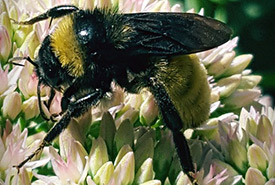
American bumble bee (Photo by K.S. Gardener/iNaturalist)
Humans have a very delicate relationship with bees. Despite their importance, many of us fail to understand just how much bees impact our daily lives — and how much we’re putting them at risk. Canada has over 850 native bee species,...
Support local biodiversity by avoiding invasive plants in your garden
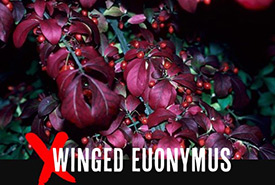
Winged euonymus (Photo by John Ruter/University of Georgia/Bugwood.org)
With gardening season upon us, the warm weather brings hope that your favourite plot of soil will be better than it was last year. At the Invasive Species Centre, we have one request as you mull over your garden plans for 2019: please avoid the...
Buzzing down the house: An update
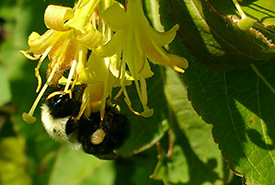
Bumble bee (Photo by Amanda Liczner)
This is an update to a post I wrote last year. The data has now been analyzed, and the results are ready for sharing. We commonly hear that bees are in decline and that we need to save them because they are important pollinators of crops and...
Open for business: Make your own insect hotel
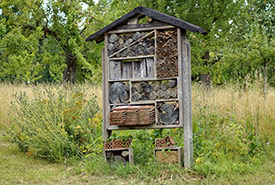
An insect hotel (Photo by Marzena7 CC0)
Many insects and their relatives, such as ladybugs, wild bees, beetles and spiders, require shelter. Make your backyard or green space open for vacancy by making an insect hotel! Similar to a bee hotel, an insect hotel helps provide shelter for...
Frick, I love nature: Comedy as nature education
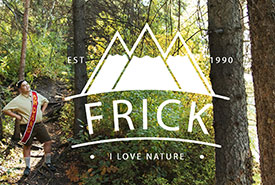
"Frick, I love nature" logo (Photo by Stephen Robinson)
Last fall I was on a trip with my girlfriend on Vancouver Island. While there, we spent a good chunk of our time exploring its national parks and learning about how life survives in those particular ecosystems. While soaking it all in, I had a...
A budding conservationist

Zoe Saranchuk (Photo courtesy of Zoe Saranchuk)
My name is Zoe Saranchuk, and I love going to Nature Conservancy of Canada (NCC) events. I love being out in nature and seeing its wonders. I go with my Oma [grandmother], who is also interested. I have always loved animals and learning about...
Acknowledging change
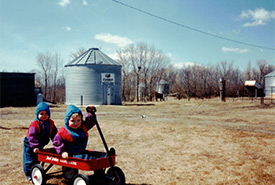
Growing up on a farm in southwestern Manitoba, some of my clearest memories are of the extreme temperatures I experienced. (Photo courtesy of Steven Anderson)
“Everything changes and nothing stands still.” ~ Heraclitus of Ephesus, as quoted by Plato Growing up on a farm in southwestern Manitoba, some of my clearest memories are of the extreme temperatures I experienced in that lovely...
What ash trees and bumble bees are telling us

American bumble bee (Photo by K.S. Gardener/iNaturalist)
Black ash and American bumble bee are not species I thought we would ever need to save. When I started my studies in conservation over 25 years ago, bumble bees still seemed commonplace, and I thought of ash as a common tree that was great for...
Reigniting a love of insects
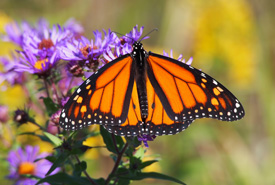
Monarch (Photo by NCC)
The love of insects can be a tough sell to many adults. Much like a fascination with dinosaurs, it seems that an interest in insects peaks during childhood and then declines for most people. Butterflies, however, are one of the few insects that...

